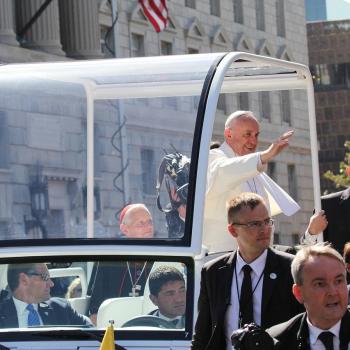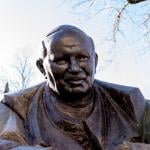Judy in Pennsylvania asks:
The various Christian denominations seemingly have particular strengths in the theology, practice, outreach, and church polity of their forms of Christian faith. How would you see these strengths being shared among individual churches and Christians across the USA and around the globe in an effort to strengthen the Christian faith?
The Guy answers:
It’s that year-end season when journalists concoct lists. The Guy has no idea how and whether churches might share their strengths but — setting aside this blog’s downplaying of mere opinion — here’s a top-of-the-head strengths listing that may rouse some comments:
Salvation Army — Taking Jesus seriusly, and not just at Thanksgiving or Christmas (“as you did it to one of the least of these my brethren you did it to me.”)
Eastern Orthodox — Worship that conveys awe and mystery. Unwavering devotion to the faith that “was once for all delivered to the saints.”
Roman Catholics — Doctrinal clarity. Rich intellectual tradition. Parochial schools. Hospitals. Charities. And much, much else. But could benefit by learning from:
Presbyterian & Reformed churches — Skill with sermons (usually). Classic Protestant governance balancing regional oversight with local iniitiative, plus responsibility, voice, vote, and sense of vocation for lay members (concepts that helped create secular republics).
Lutherans — Choirs. Parish architecture and other visuals (often). Wise handling of schism to honor conscience and limit strife.
Anglicans & Episcopalians — Liturgy. Hymnody. But could learn much from the Lutherans on schism.
Black Baptists & Methodists — Enthusiasm. Free expression. Personal services in challenging circumstances.
Pentecostals & Charismatics — Ditto. Revival of healing ministries. New music forms and worship experiments (not always beneficial).
Mennonites & Quakers — Social services. And though most disagree, an idealistic stance against violence that invites reflection. Special thanks to the Quakers for launching America’s movement to abolish slavery.
“Mainline” Protestants generally — Also a heritage worth preserving, e.g. lending white moral support to the black civil rights movement.
“Evangelical” churches and groups — Originality in all sorts of outreach, media enterprises, and specialized ministries. Commitment to the Bible and to Bible study. Originality also (though not always for the best) in theology and political activism.
Southern Baptists — Creative dedication to home and foreign missions. Some success in keeping adolescents and young adults engaged.
Latter-day Saints (“Mormons”) — A much more successful system to achieve that last point.
Observant Muslims & Orthodox Jews — All church groups might learn from their disciplines that bring reminders of God’s presence into life each day.












